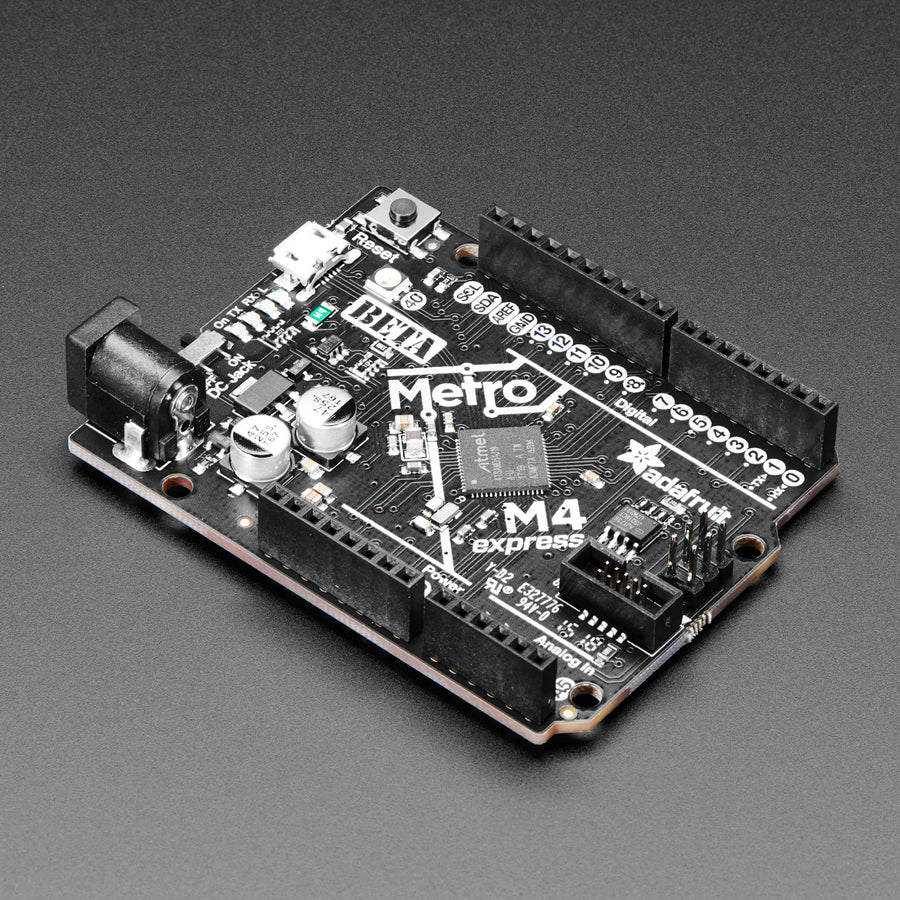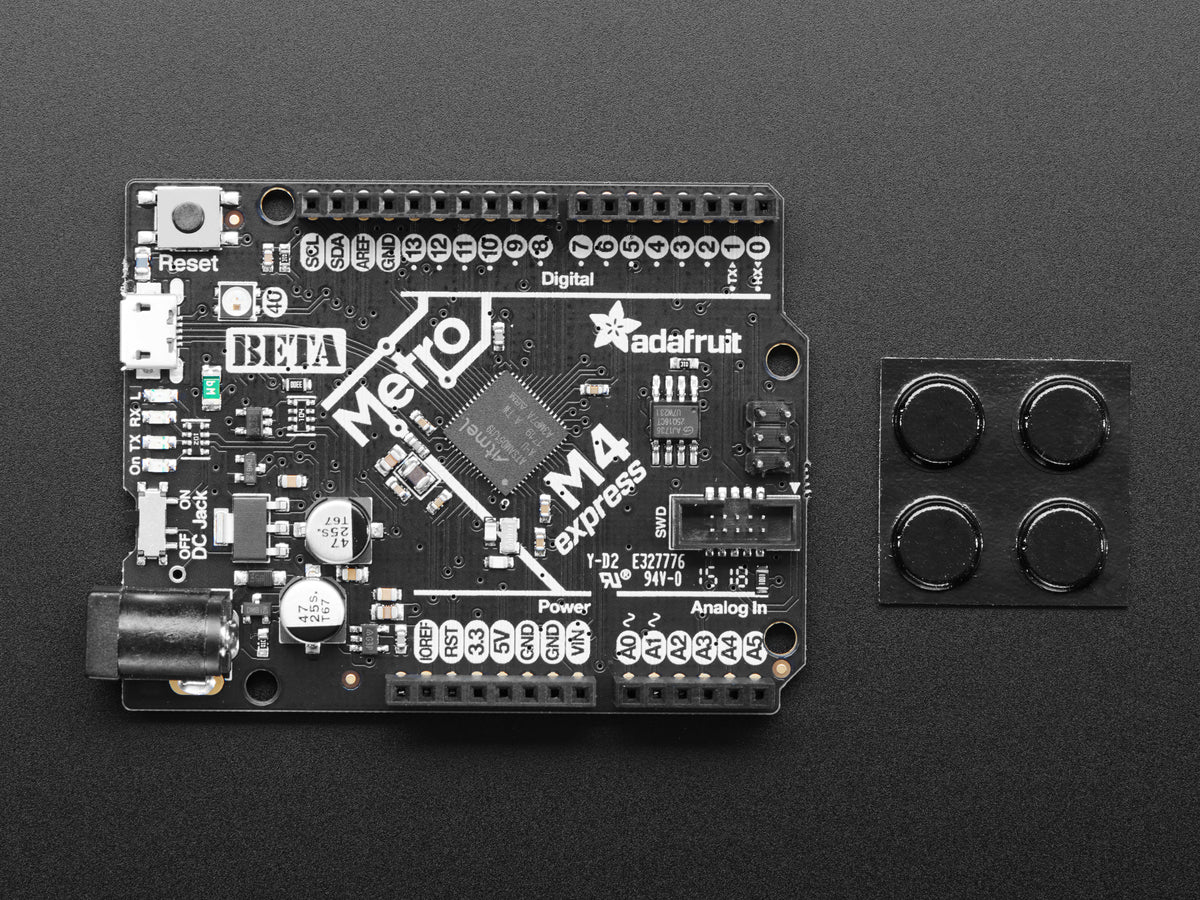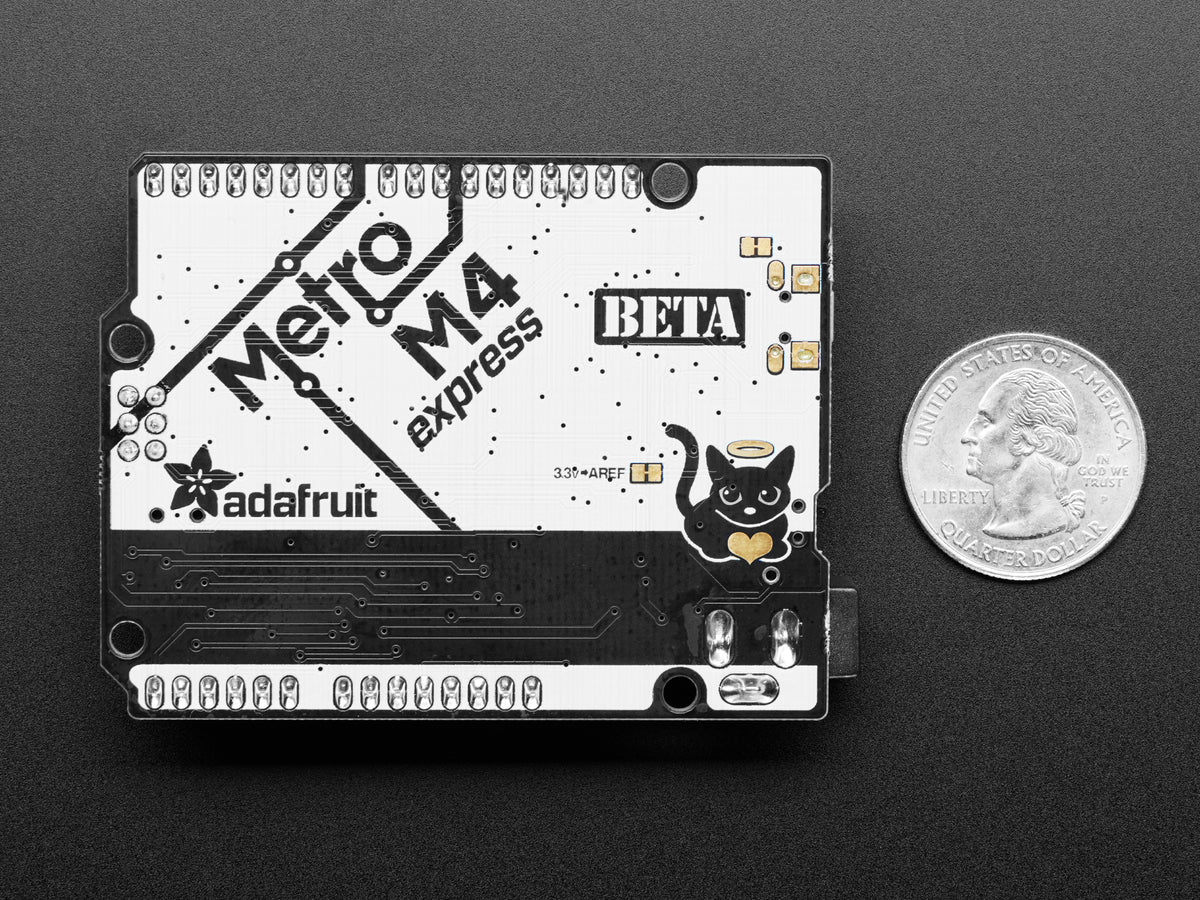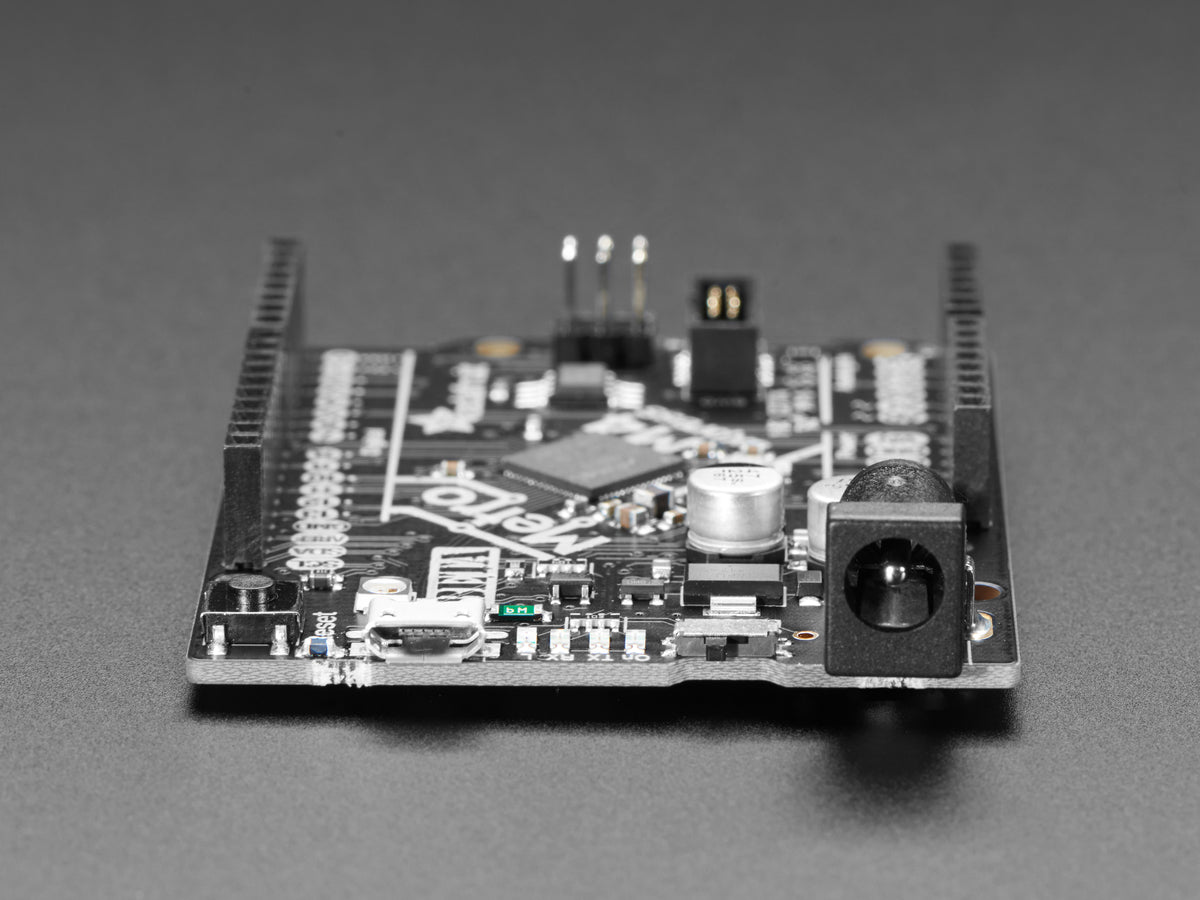Adafruit
Adafruit Metro M4 feat. Microchip ATSAMD51
Adafruit Metro M4 feat. Microchip ATSAMD51
Couldn't load pickup availability
Are you ready? Really ready? Cause here comes the fastest, most powerful Metro ever. The Adafruit Metro M4 featuring the Microchip ATSAMD51. This Metro is like a bullet train, with it's 120MHz Cortex M4 with floating point support. Your code will zig and zag and zoom, and with a bunch of extra peripherals for support, this will for sure be your favorite new chipset.
To start off our ATSAMD51 journey we decided to kick it off with the classic 'Arduino compatible' shape and pinout you know and love. This Metro is the same size as the others, and is compatible with all our shields. It's got analog pins where you expect, and SPI/UART/I2C hardware support in the same spot as the Metro 328 and M0. But! It's powered with an ATSAMD51J19:
- Cortex M4 core running at 120 MHz
- Hardware DSP and floating point support
- 512 KB flash, 192 KB RAM
- 32-bit, 3.3V logic and power
- Dual 1 MSPS DAC (A0 and A1)
- Dual 1 MSPS ADC (8 analog pins)
- 6 x hardware SERCOM (I2C, SPI or UART)
- 16 x PWM outputs
- Stereo I2S input/output with MCK pin
- 10-bit Parallel capture controller (for camera/video in)
- Built in crypto engines with AES (256 bit), true RNG, Pubkey controller
- 64 QFN
Pretty good start right? So we put this chip on a PCB with all these nice extras:
- Power the METRO M4 with 7-9V polarity protected DC or the micro USB connector to any 5V USB source. The 2.1mm DC jack has an on/off switch next to it so you can turn off your setup easily. The METRO will automagically switch between USB and DC.
- METRO has 25 GPIO pins, 8 of which are analog in, and two of which is a true analog out. There's a hardware SPI port, hardware I2C port and hardware UART. Logic level is 3.3V
- Native USB, there's no need for a hardware USB to Serial converter as the Metro M4 has built in USB support. When used to act like a serial device, the USB interface can be used by any computer to listen/send data to the METRO, and can also be used to launch and update code via the bootloader. It can also act like an HID keyboard or mouse.
- Four indicator LEDs and one NeoPixel, on the front edge of the PCB, for easy debugging. One green power LED, two RX/TX LEDs for data being sent over USB, and a red LED connected. Next to the reset button there is an RGB NeoPixel that can be used for any purpose.
- 2 MB QSPI Flash storage chip is included on board. You can use the SPI Flash storage like a very tiny hard drive. When used in Circuit Python, the 2 MB flash acts as storage for all your scripts, libraries and files. When used in Arduino, you can read/write files to it, like a little datalogger or SD card, and then with our helper program, access the files over USB.
- Easy reprogramming, comes pre-loaded with the UF2 bootloader, which looks like a USB storage key. Simply drag firmware on to program, no special tools or drivers needed! It can be used to load up CircuitPython or Arduino IDE (it is bossa v1.8 compatible)
We have a working Arduino board support package, with lots of stuff working, but our primary target for this board is CircuitPython - with 120 MHz, and 192KB of RAM CircuitPython runs really well on this chip! At this time, we have CircuitPython 3.0 alpha working, and adding more API parts every week.
We're starting off with a BETA marking on this board because this is the first development board with this chip so you can expect 'excitement', 'adventure' and 'oops that doesnt work in this silicon revision'! Here is our text when we first blogged about it
So what are you waiting for? Pick up a Metro M4 today and be amazed at how easy and fast it is to get started with CircuitPython! Check out our learning guide for more details, schematics, Fritzing objects, files and more!
Downloads








